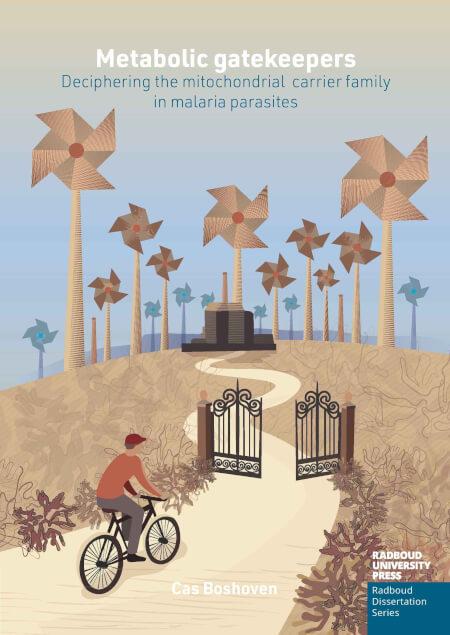Metabolic gatekeepers: Deciphering the mitochondrial carrier family in malaria parasites
Keywords:
Plasmodium, Mitochondrion, Mitochondrial carrier, Transport, MalariaSynopsis
Malaria remains a major global health threat, with increasing resistance to front-line treatments underscoring the urgent need for new therapeutic strategies. The mitochondrion of Plasmodium parasites – the causative agents of malaria – poses a promising drug target due to its divergence from the human counterpart and its essential roles throughout the parasite’s life cycle. As a hub of metabolic activity, the organelle relies on the transport of metabolites across its impermeable inner membrane, a task carried out by a specialised family of proteins known as mitochondrial carriers. This thesis combines computational analyses, genetic manipulation of parasites, and recombinant protein expression to functionally characterise this important protein family. In-depth studies of the poorly conserved carrier AMC1 suggest it has lost its transport function and instead plays a role in mitochondrial dynamics during host switching. These investigations also led to the discovery of multiple mitochondria during gametocyte and gamete development, as well as striking differences in mitochondrial dynamics between male and female gametes. Together, these findings challenge the long-standing dogma of a single mitochondrion throughout the parasite’s life cycle, form the foundation for future mitochondrial carrier research and offer new perspectives on mitochondrial biology as a source of potential antimalarial targets.

Published
Series
Categories
License

This work is licensed under a Creative Commons Attribution-NonCommercial-NoDerivatives 4.0 International License.


